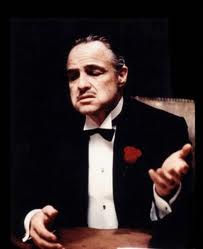 With all the reading I do, I’m very aware of how I feel about different characters in different books. There are times when I’ll go weeks — months, even — and not read a book that knocks me out. I begin to wonder if I’m getting jaded, but then, suddenly, a book comes along that I simply love and the characters are more like dear friends than two-dimensional sketches. These characters really grab me: make me laugh, make me cry, make me bite my nails with worry over their challenges. But they’re rare. Rarer than they should be. So it got me to thinking, what makes a really, really great character? Here’s my list, in no particular order. Continue reading “What Makes a Great Character?”
With all the reading I do, I’m very aware of how I feel about different characters in different books. There are times when I’ll go weeks — months, even — and not read a book that knocks me out. I begin to wonder if I’m getting jaded, but then, suddenly, a book comes along that I simply love and the characters are more like dear friends than two-dimensional sketches. These characters really grab me: make me laugh, make me cry, make me bite my nails with worry over their challenges. But they’re rare. Rarer than they should be. So it got me to thinking, what makes a really, really great character? Here’s my list, in no particular order. Continue reading “What Makes a Great Character?”
Tag: Character Growth
Killing Your Darlings: The Death of a Central Character
 Guest post
Guest post
by Mark Hamner
William Faulkner famously said, “In writing, you must kill all your darlings.” He was, of course, talking about having the guts to eliminate superfluous prose, chapters, etc. from your work. However, as I was completing my third book, Cinder’s Reach, I had the task of killing one of my darlings in a very different way. As a caution, I should note that everything from this point on should be considered a spoiler for those who are considering reading The Echo Chronicles.
My Echo Chronicles series revolves around four central characters: Trin, the protagonist, Cipher, his best friend, Creed, the hothead, and Dalton, the nice guy. As I progressed through the books in the series, it became clear, both in my own mind and from my conversations with others, that one of my characters had become the clear favorite. To my surprise, that character wasn’t Trin; it was Cipher. Something about the fact that she never stopped trying to help others despite the fact that she was, herself, fairly messed up, really drew people to her. Trin was leaning on her more and more, and she was constantly putting her own life on the line for him and the rest of her friends. The world inhabited by my characters is extremely volatile and dangerous. Early on the thought struck me that it wouldn’t be entirely realistic for my characters to continue getting into dire situation after dire situation only to come out relatively unscathed. Continue reading “Killing Your Darlings: The Death of a Central Character”
Storycraft 101

We have covered a lot of the technical aspects of writing. All of those are important. You want your manuscript to be well-edited and as error-free as possible. You want a nice cover, because you never get a second chance to make a first impression. You need a nice cover blurb that will hook the reader and invite further exploration.
Problems in any of those areas can cause a reader to hate your book. Good storycraft is the one thing that can cause a reader to love your book in spite of problems in those other areas. You can actually see evidence of this in reviews. You do not see reviews that call the author’s sparse use of the semicolon and deft application of commas breathtaking. The cover might sell a book, but it is rarely the subject of a line in a review. A good book is nothing more than a good story well-told. That is storycraft.
I break storycraft into seven elements: Authenticity, Authority, Continuity, Character Growth, Foreshadowing, Pacing, and Resolution. Continue reading “Storycraft 101”
